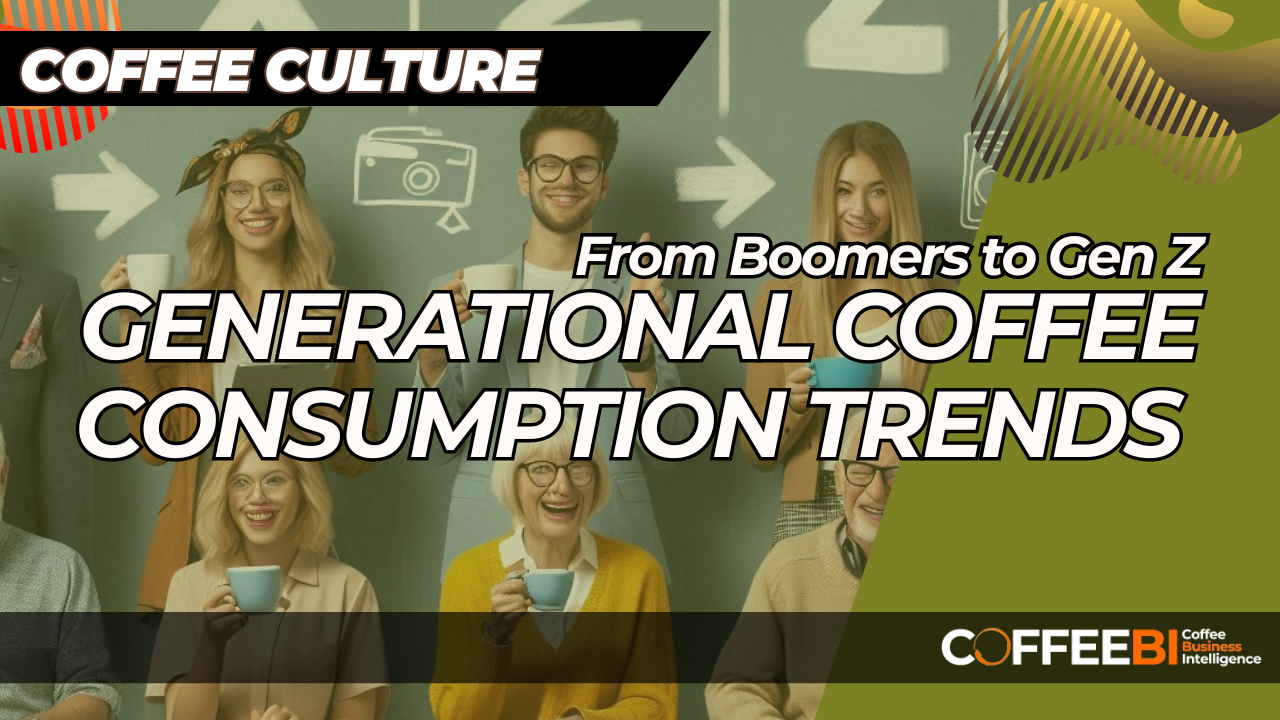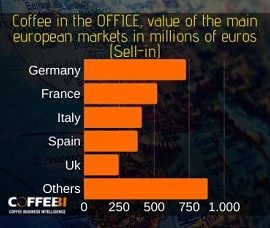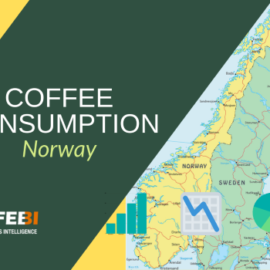Generational Coffee Consumption Trends: From Boomers to Gen Z
In the ever-evolving landscape of consumer preferences, the coffee industry has witnessed a remarkable transformation across generations. From the traditional brew-at-home Baby Boomers to the tech-savvy, environmentally conscious Gen Z, each age group has left its unique imprint on coffee culture.
With this “caffeinated journey”, we’ll explore the distinct coffee habits of Baby Boomers, Generation X, Millennials, and Generation Z. By examining a wealth of data, expert insights, and emerging trends, we aim to paint a vivid picture of how each generation’s values and lifestyles shape their coffee preferences.
- Baby Boomers (Born 1946-1964)
- Generation X (Born 1965-1980)
- Millennials (Born 1981-1996)
- Generation Z (Born 1997-2012)
From the comforting routines of older generations to the adventurous palates of younger coffee enthusiasts, overview aims to reveal the underlying factors driving coffee consumption across the generational spectrum.

Baby Boomers (Born 1946-1964)
Consumption Patterns
Baby Boomers have been the backbone of traditional coffee consumption for decades. A 2021 study by the National Coffee Association (NCA) found that 70% of Baby Boomers drink coffee daily, higher than any other generation.
- Preference for traditional drip coffee
- Tendency to consume coffee at home or in diners
- Less likely to experiment with new coffee trends
Values and Motivations
- Routine and familiarity
- Value for money
- Social aspect of coffee drinking
About 65% of Baby Boomers cited “waking up” as their primary reason for drinking coffee, emphasizing its functional role in their daily lives.
Generation X (Born 1965-1980)
Consumption Patterns
Generation X represents a bridge between traditional and modern coffee culture. The same NCA study found that 64% of Gen Xers drink coffee daily.
- Increased interest in espresso-based drinks compared to Boomers
- Growing appreciation for coffee shop experiences
- Balancing between at-home and out-of-home consumption
Values and Motivations
- Quality and taste
- Convenience
- Work-life balance
A 2020 survey by YouGov revealed that 41% of Gen Xers consider themselves “coffee aficionados,” indicating a deeper interest in coffee quality and variety.
Millennials (Born 1981-1996)
Consumption Patterns
Millennials have been at the forefront of the specialty coffee movement. The NCA report shows that 62% of Millennials consume coffee daily [1].
- Strong preference for espresso-based and cold brew drinks
- Frequent coffee shop visitors
- Enthusiastic about trying new coffee trends and flavuors
Values and Motivations
- Sustainability and ethical sourcing
- Experiential consumption
- Health and wellness
A 2022 study by the Specialty Coffee Association (SCA) found that 65% of Millennials are willing to pay more for sustainably sourced coffee, highlighting their focus on ethical consumption.
Generation Z (Born 1997-2012)
Consumption Patterns
As the youngest consumer group, Gen Z is shaping the future of coffee consumption. While only 47% report daily coffee consumption according to the NCA, their influence on the industry is significant.
- Preference for sweeter, flavoured coffee drinks
- Heavy users of ready-to-drink (RTD) coffee products
- Highly influenced by social media trends in coffee consumption
Values and Motivations
- Innovation and uniqueness
- Social responsibility
- Digital integration in coffee experiences
About 73% of Gen Z coffee drinkers in the USA have ordered coffee through a mobile app in the past three months, showcasing their tech-savvy approach to coffee consumption.
Comparative Analysis
| Generation | Daily Coffee Consumption | Primary Motivation | Preferred Coffee Type | Key Value | Notable Trend |
|---|---|---|---|---|---|
| Baby Boomers | 70% | Functionality | Traditional drip coffee | Routine and familiarity | Home brewing |
| Generation X | 64% | Quality | Espresso-based drinks | Balance | Balance of home and café consumption |
| Millennials | 62% | Experience | Specialty coffee | Sustainability | Willingness to pay more for ethical sourcing |
| Generation Z | 47% | Innovation | Flavoured and RTD coffee | Uniqueness | Mobile app ordering |
This table provides a concise overview of the key differences in coffee consumption patterns, preferences, and values across generations. It highlights the shift from traditional coffee habits among Baby Boomers to more diverse and technologically integrated consumption patterns among younger generations, particularly Gen Z. The overall trend shows a growing emphasis on sustainability and personalization in coffee consumption across all age groups.
Emerging Trends
Our analysis of generational coffee consumption trends reveals several key insights that are shaping the industry. Sustainability has emerged as a paramount concern across all age groups, with a particularly strong emphasis among Millennials and Generation Z. A recent global survey conducted by FMCG Gurus in 2022 underscores this trend, indicating that 71% of consumers factor sustainability into their coffee purchasing decisions. This growing consciousness about environmental impact is driving demand for sustainably sourced and eco-friendly coffee products.
Another significant trend is the increasing interest in the health and wellness aspects of coffee consumption, especially among younger generations. The coffee industry has responded to this demand, as evidenced by a 2021 report from Innova Market Insights. It was reported a substantial 70% increase in coffee product launches featuring added functional benefits between 2016 and 2020. This shift reflects a growing consumer desire for coffee products that not only provide a caffeine boost but also offer additional health benefits.
Customization and personalization have also become key factors in coffee consumption preferences. While this trend is evident across all generations, it is particularly pronounced among younger consumers. A 2023 study by Technomic highlighted that 45% of Gen Z coffee drinkers place a high value on the ability to customize their coffee drinks. This desire for personalized experiences is reshaping how coffee is marketed and served.
The integration of digital technology into the coffee consumption experience is another trend that cannot be overlooked. While more prevalent among younger generations, digital tools for ordering, loyalty programs, and coffee education are gaining importance across all age groups. The Allegra World Coffee Portal reported in 2022 that 55% of US coffee shop visitors had used a loyalty app in the previous month. This statistic underscores the growing role of technology in shaping coffee consumption habits.
For coffee companies and machine manufacturers, understanding these generational differences is crucial for product development, marketing strategies, and long-term business planning. The future of coffee consumption lies in striking a balance between traditional values and innovative approaches. This involves catering to the diverse preferences of all generations while addressing overarching trends in sustainability, health, and technology integration.



